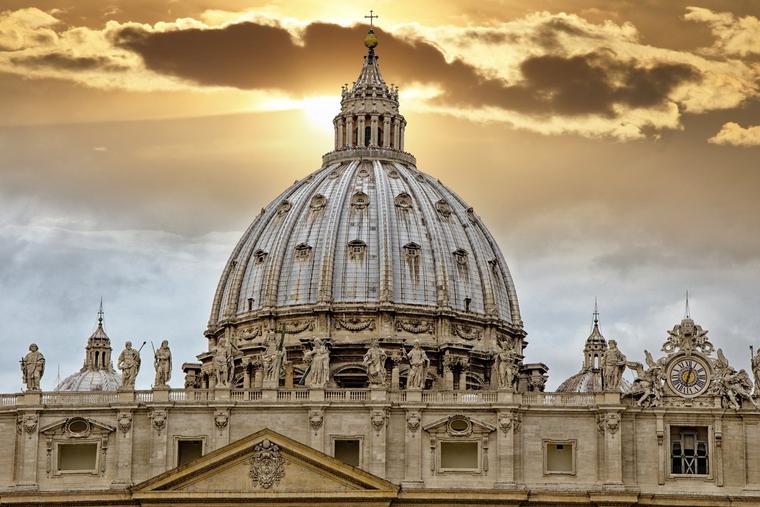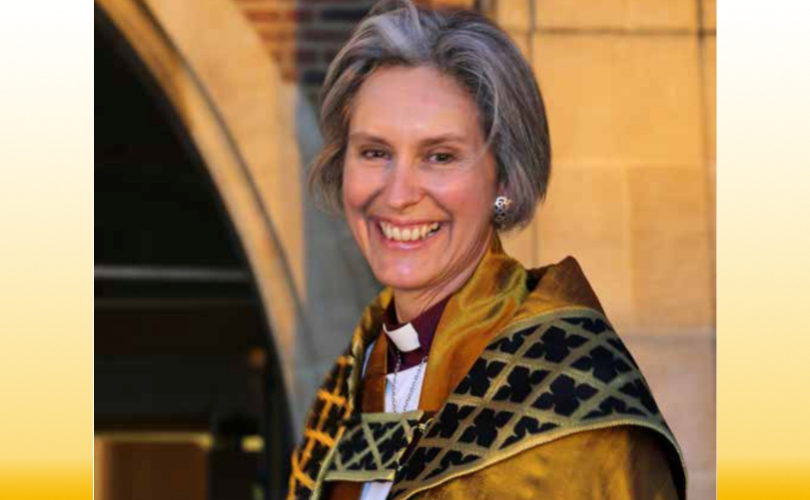- Feb 5, 2002
- 166,654
- 56,276
- Country
- United States
- Faith
- Catholic
- Marital Status
- Married
- Politics
- US-Others
Rev. Jo Bailey Wells, as well as Salesian Sister Linda Pocher and consecrated virgin Goiliva Di Berardino of Italy, presented remarks on the subject of women in the Catholic Church.
VATICAN CITY — A female Anglican bishop who has campaigned for “gender equality” addressed the Council of Cardinals on Monday as part of a session dedicated to deepening a reflection "on the role of women in the Church.”
Rev. Jo Bailey Wells, who is deputy secretary general of the Anglican Communion, was one of the first generation of women to be ordained a vicar in the Church of England in 1995. Married to an Anglican clergyman with two children, she has also served as chaplain to the Archbishop of Canterbury.
The Anglican bishop, who in the past has praised “gender history” for highlighting how “institutions are gendered and how institutions gender individuals,” also addressed an interreligious meeting attended by Pope Francis in Kazakhstan in October 2022 when she reportedly said “gender equality is part of God’s plans.”
The Council of Cardinals, also called the “C9,” is a group of nine cardinals Pope Francis established in 2013 to advise him on Church reform and governance. One of its main tasks, to advise the Pope on reforming the Roman Curia, led to the 2022 apostolic constitution Praedicate Evangelium (Preach the Gospel). It has also often brought in guest speakers to address the Pope and cardinals on key themes.
Continued below.

 www.ncregister.com
www.ncregister.com
VATICAN CITY — A female Anglican bishop who has campaigned for “gender equality” addressed the Council of Cardinals on Monday as part of a session dedicated to deepening a reflection "on the role of women in the Church.”
Rev. Jo Bailey Wells, who is deputy secretary general of the Anglican Communion, was one of the first generation of women to be ordained a vicar in the Church of England in 1995. Married to an Anglican clergyman with two children, she has also served as chaplain to the Archbishop of Canterbury.
The Anglican bishop, who in the past has praised “gender history” for highlighting how “institutions are gendered and how institutions gender individuals,” also addressed an interreligious meeting attended by Pope Francis in Kazakhstan in October 2022 when she reportedly said “gender equality is part of God’s plans.”
The Council of Cardinals, also called the “C9,” is a group of nine cardinals Pope Francis established in 2013 to advise him on Church reform and governance. One of its main tasks, to advise the Pope on reforming the Roman Curia, led to the 2022 apostolic constitution Praedicate Evangelium (Preach the Gospel). It has also often brought in guest speakers to address the Pope and cardinals on key themes.
Continued below.

Female Anglican Bishop Addresses Pope Francis’ Council of Cardinals
Rev. Jo Bailey Wells, as well as Salesian Sister Linda Pocher and consecrated virgin Goiliva Di Berardino of Italy, presented remarks on the subject of women in the Catholic Church.


